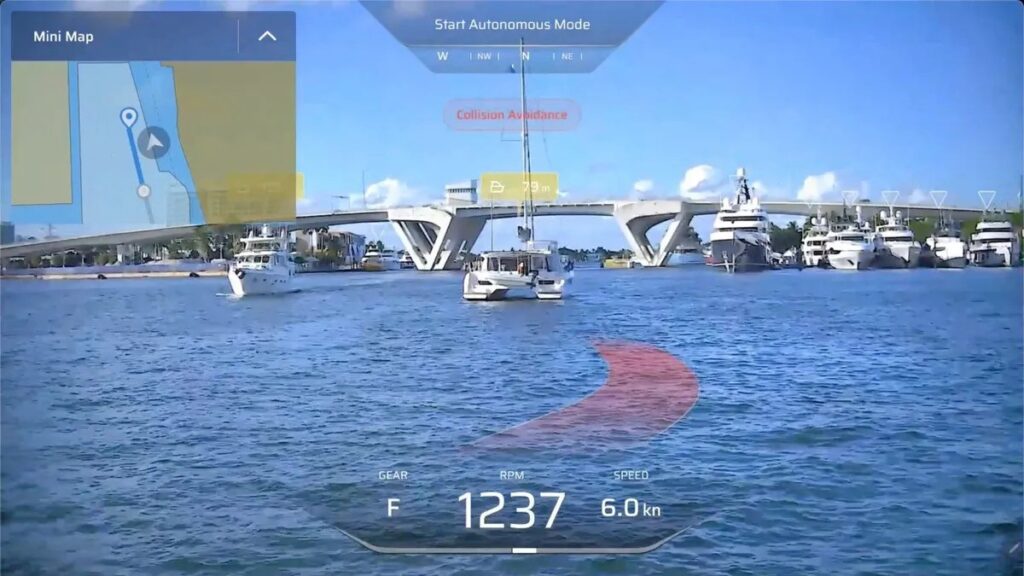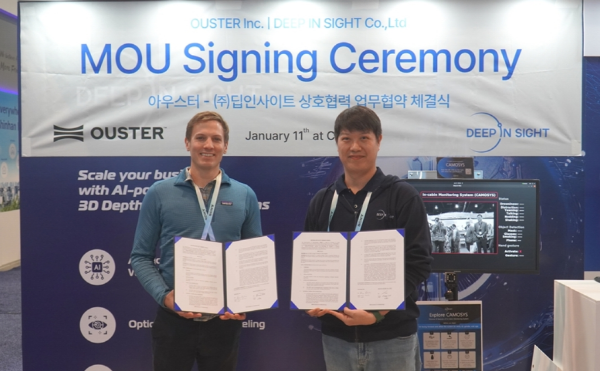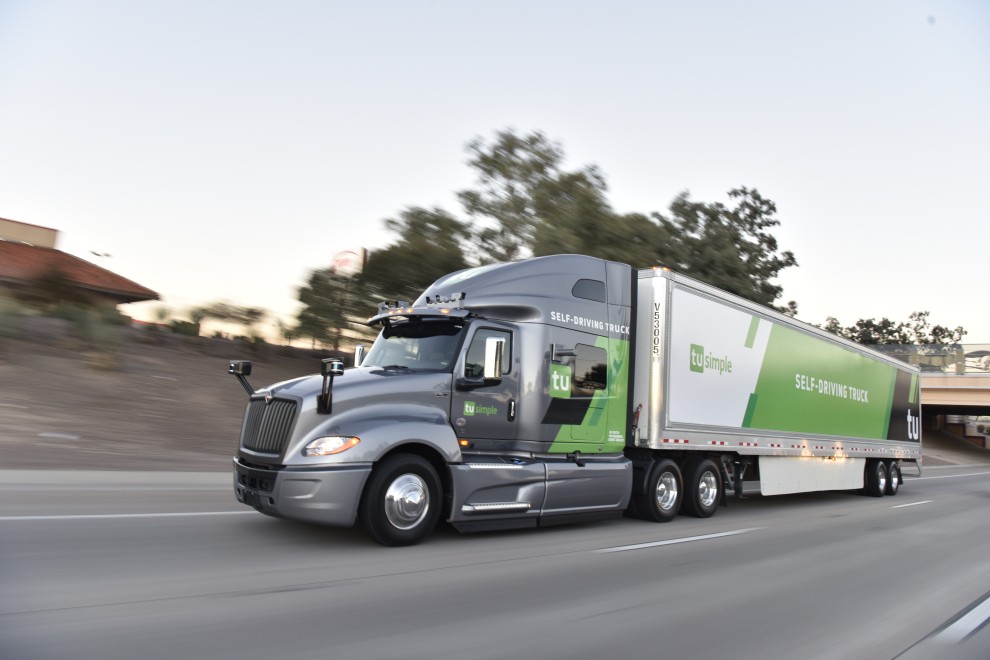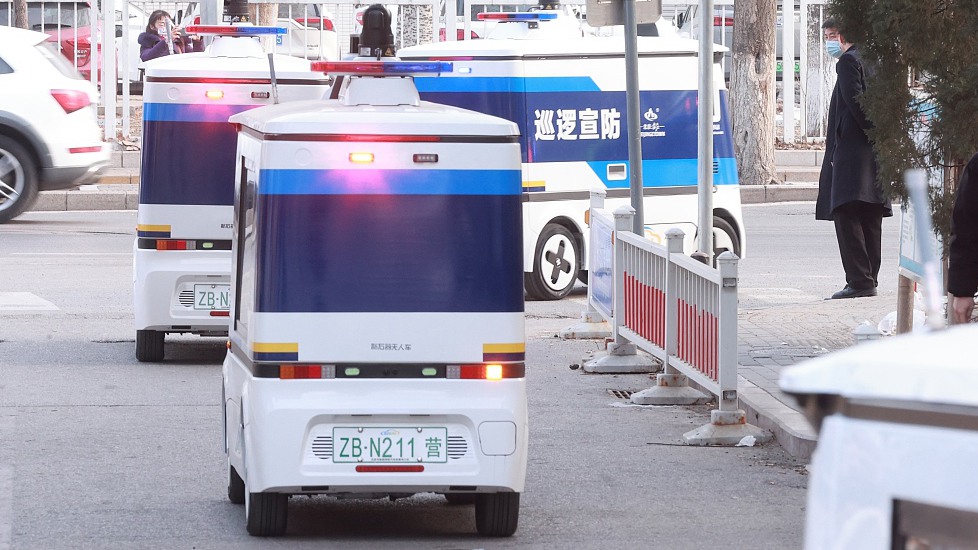
Vueron Newsletter
No. 82
2024.01.19
| Ranix signs MOU with Chinese company to collaborate on autonomous driving | ||
| Seyond and Avikus Partner to Propel Autonomous Boating with LiDAR Technology | ||
| TuSimple is leaving the Nasdaq as it exits the US | ||
| Self-driving police patrol cars tested on Beijing roads |
1. Ranix signs MOU with Chinese company to collaborate on autonomous driving
-
- Ranix has signed an MOU with United Micro Technology (UMT) for a partnership collaboration in autonomous driving.
- The collaboration focuses on the development of 5G-NR-V2X solutions, connecting vehicles through fifth-generation mobile communication technology.
- Ranix will provide 5G-NR-V2X modem chip technology, and UMT will contribute Uu red cap technology for the development of new products.
- The agreement includes the establishment of a global market sales partnership for V2X solutions, covering regions such as Korea and China.
- UMT, headquartered in Shenzhen, China, is a global high-tech company specializing in cellular IoT solutions, with R&D centers and offices in various countries.
- Ranix, founded in 2003, is a V2X chip and solution company. They previously announced the development of a 64 QAM radio, with the 5G NR V2X chip expected to be introduced later this year.
- UMT expresses anticipation for developing and introducing 5G-enabled autonomous driving solutions with Ranix’s expertise in automotive system semiconductors.

The partnership between Ranix and UMT focuses on the development of next-generation autonomous driving solutions using 5G-NR-V2X technology. The collaboration extends beyond technology sharing to include a global market sales partnership, aiming to capitalize on the sales networks of both companies in East Asia.
2. Seyond and Avikus Partner to Propel Autonomous Boating with LiDAR Technology
-
- Seyond, formerly Innovusion, is collaborating with Avikus to integrate its Falcon LiDAR sensor into autonomous boating solutions, aiming to enhance safety and intelligence in the recreational boating industry.
- Avikus selected Seyond’s LiDAR for its precise detection, superior navigation, and enhanced autonomous functionality, with the first boat models featuring a 500-meter detection range expected to launch in the summer.
- Seyond is a world leader in high-performance LiDAR solutions, with a strong presence in various sectors, including automotive, intelligent transportation, robotics, and industrial automation, and over 200,000 Falcon units in current use.

Avikus’s selection of Seyond’s Falcon LiDAR sensor is seen as a significant milestone, showcasing the importance of precise detection and navigation in autonomous boating. The 500-meter detection range of Falcon is a notable feature, contributing to superior capabilities in the first boat models set to be released in the summer.
3. Deep-In-Sight signs MOU with Ouster
-
- Deep-In-Sight, an AI-based 3D sensing solution startup, has signed a strategic technology cooperation MOU with US lidar company OUSTER at CES 2024.
- The collaboration aims to develop and promote LiDAR-based 3D scanners for acquiring 3D spatial information in various sectors, including construction, architecture, proptech, and interior.
- Deep-In-Sight will work on advancing and stabilizing the technology of DIMENVUE, an Ouster LiDAR-based handheld 3D spatial information scanner.
- DIMENVUE is an ‘all-in-one’ device that miniaturizes Ouster lidar and a high-capacity lithium-ion battery; the RGB image data acquired through lidar enables object labeling and segmentation through artificial intelligence (AI) learning; the device selectively monitors and captures necessary spatial information in real-time, providing both 2D and 3D drawing information.
- The collaboration aims to accelerate the adoption of DIMENVUE in both domestic and global construction and interior markets.
- Deep-In-Sight and Ouster plan to create synergies by identifying new opportunities for joint product development based on Ouster Lidar; the companies will collaborate on sales and marketing efforts to combine Ouster Lidar with AI 3D camera technology for future technology solutions.
- Deep-In-Sight showcased other solutions at CES 2024, including CAMOSYS (automotive in-cabin monitoring system), ROUNVUE (3D Surround View Monitoring), and VOMASYS (volume measurement solution for logistics and transportation).

The partnership between Deep-In-Sight and OUSTER at CES 2024 highlights a strategic collaboration focused on advancing LiDAR-based 3D sensing solutions across multiple industries. The emphasis on DIMENVUE, an all-in-one device with advanced LiDAR capabilities, demonstrates the commitment to providing practical solutions for spatial information acquisition in construction, architecture, proptech, and interior sectors.
4. TuSimple is leaving the Nasdaq as it exits the US
-
- Chinese autonomous trucking startup TuSimple is set to delist from the Nasdaq stock exchange, marking its complete exit from the U.S. market.
- TuSimple will file a Form 25 around January 29 to deregister its stock, with shares expected to trade until about February 7.
- Reasons for delisting include a decline in valuation and liquidity, increased stock price volatility, and a belief that the benefits of remaining publicly traded no longer justify the costs.
- TuSimple, which went public in 2021 with a valuation of over $8 billion, is now worth around $70 million, with shares trading at approximately 30 cents.
- A significant shift in capital markets since TuSimple’s IPO is cited, attributed to rising interest rates and quantitative tightening, impacting investor sentiment for pre-commercialization technology growth companies.
- TuSimple faced scrutiny before going public, leading to investigations by the FBI and SEC, and co-founder Xiaodi Hou was pushed out in late 2022 during the investigations.
- The company struggled with strategy, reduced headcount, and narrowly avoided forced delisting in May 2022.
- TuSimple decided in late 2022 to fully exit the U.S. market and focus on China, with assets, including trucks and lidar sensors, now going up for auction.

The company’s struggles over the past two years, including investigations, leadership changes, and strategic uncertainties, have contributed to its decision to exit the U.S. market. The statement regarding the shift in capital markets highlights broader economic factors impacting technology growth companies, emphasizing the evolving landscape since TuSimple’s IPO.
5. Self-driving police patrol cars tested on Beijing roads
-
- The Beijing high-level autonomous driving demonstration area has initiated road tests for unmanned police patrol cars, marking the first of its kind in China.
- Fifteen self-driving patrol cars with Level 4 autonomous driving technology, capable of performing round-the-clock police duties, are deployed in the Yizhuang autonomous driving demonstration area.
- The patrol cars, developed by Neolix, can complete battery replacement in 30 seconds and have a driving range of 100 km.
- Duties being tested include patrolling, ensuring security for large-scale events, public announcements, issuing warnings, and emergency rescue work.
- The vehicles feature a 360-degree multi-sensor fusion perception capability with a detection range of up to 120 meters, ensuring driving safety through real-time response based on road conditions.
- The unmanned vehicle team will patrol a 60-square-kilometer area in the demonstration zone.
- The Beijing autonomous driving demonstration area, initiated in September 2020, covers 160 square kilometers with intelligent connected roads and a dedicated smart city network.
- Currently, 28 vehicle testing companies operate in the area, with over 800 vehicles engaged in testing and commercial exploration, accumulating a test mileage exceeding 20 million kilometers.

The launch of unmanned police patrol cars in Beijing’s autonomous driving demonstration area signifies a significant step in implementing autonomous technologies for public safety and law enforcement in China. Testing various duties, including security for events and emergency response, demonstrates the versatility and potential applications of autonomous police patrol cars.
*Contents above are the opinion of ChatGPT, not an individual nor company

